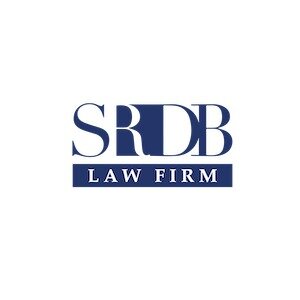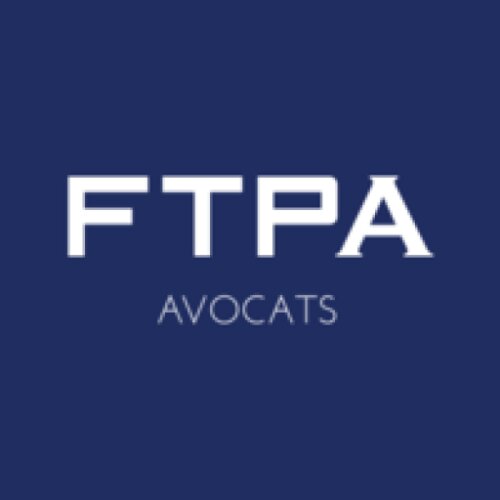Best Debt Capital Markets Lawyers in France
Share your needs with us, get contacted by law firms.
Free. Takes 2 min.
Or refine your search by selecting a city:
List of the best lawyers in France
About Debt Capital Markets Law in France
Debt Capital Markets (DCM) in France involve raising funds by issuing debt instruments such as bonds, notes, and other fixed-income securities to investors. These markets are essential for both corporations and public bodies seeking to finance operations, projects, or refinance existing debt. French Debt Capital Markets operate within a robust legal and regulatory framework designed to foster trust, transparency, and investor protection. The sector is among the most developed in Europe, with Paris being a key financial hub supporting both domestic and international transactions.
Why You May Need a Lawyer
There are many situations where legal advice becomes crucial in the context of Debt Capital Markets in France. These include:
- Structuring and launching bond or note offerings
- Ensuring compliance with French and European securities regulations
- Drafting and reviewing offering memoranda, prospectuses, or related contracts
- Advising on cross-border debt issuances and listings on Euronext Paris or other exchanges
- Negotiating with institutional investors or rating agencies
- Resolving disputes relating to covenant breaches, default events, or restructuring
- Advising on tax implications and regulatory disclosures
- Supporting consent solicitations or liability management exercises
Local Laws Overview
Several key legal frameworks govern Debt Capital Markets activity in France:
- French Commercial Code (Code de commerce): Sets rules for companies issuing debt and requirements for their governance.
- Financial Markets Authority (Autorité des marchés financiers or AMF): Regulates public offers of debt securities, prospectus approvals, ongoing disclosure obligations, and protects investors.
- French Monetary and Financial Code (Code monétaire et financier): Establishes rules on financial instruments, public offerings, and market practices within France.
- EU Regulations: Notably the Prospectus Regulation, Market Abuse Regulation, and MIFID II, all of which apply to French DCM transactions. These harmonize prospectus content, market integrity, and investor protection requirements across Europe.
- Listing Rules of Euronext Paris: Stipulate additional requirements for securities listed on the main Paris exchange.
Frequently Asked Questions
What are Debt Capital Markets?
Debt Capital Markets refer to the market where entities raise funds by issuing debt securities, such as bonds and notes, to investors, rather than through equity.
Who can issue debt securities in France?
Companies, financial institutions, public sector entities, and even some supranational organizations can issue debt securities in the French market, subject to regulatory approval and compliance.
Do I need a prospectus to issue debt securities in France?
Yes, if the securities are offered to the public or listed on a regulated market in France, a prospectus is typically required. Some private placements or offerings to qualified investors may be exempt.
Who approves the prospectus for public debt offerings?
The French Financial Markets Authority (AMF) reviews and approves prospectuses for public offerings or listings on regulated markets in France.
What are my ongoing obligations after issuing debt securities?
Issuers must comply with ongoing disclosure, reporting, and transparency obligations, such as informing the market of significant events or financial hardship that may affect the value of the securities.
Can foreign companies issue bonds in France?
Yes, foreign entities can issue bonds in France, provided they meet the requirements set by the AMF and applicable French and EU regulations.
What is the role of a trustee in bond issuances?
A trustee represents the interests of bondholders, ensures the issuer fulfills its obligations, and may take action if there is a default or breach of covenants.
What is the difference between a public and a private debt offering?
A public offering involves offering securities to the general public and usually requires a prospectus, while a private offering is directed to a limited number of investors and may benefit from certain regulatory exemptions.
What happens if an issuer defaults on its bonds?
If the issuer fails to meet its payment or other obligations, bondholders may have legal remedies that can include negotiation, enforcement proceedings, or restructuring, often guided by the terms of the bond documentation.
Is French law or another law typically used for governing debt issuances?
Both French law and, in some cross-border deals, English law may be used, depending on the issuer, investor base, and market practice. Legal advice is important to understand the implications of each choice.
Additional Resources
If you need further information or wish to stay informed about developments in the field, the following resources may be useful:
- Autorité des marchés financiers (AMF): France’s financial markets regulator providing rules, guidance, and updates for issuers and investors.
- Banque de France: Offers economic analysis, financial stability reports, and statistics relevant to French capital markets.
- Euronext Paris: The main exchange for listing debt securities in France, with resources for issuers and investors.
- Association française des marchés financiers (AMAFI): Professional body providing advocacy and technical guidance for financial market participants.
- French Ministry of the Economy and Finance: Sets policy and provides public information on regulation, securities markets, and industry developments.
Next Steps
If you believe you require legal assistance regarding Debt Capital Markets in France, consider the following steps:
- Identify your specific needs, such as issuance, compliance, dispute resolution, or cross-border advice;
- Gather all relevant documents and information about your business, intended transaction, or legal issue;
- Consult with a qualified lawyer who specializes in Debt Capital Markets and has experience with French and European regulations;
- Discuss your goals, possible solutions, and ask about likely timelines, costs, and alternative strategies;
- Stay informed about ongoing regulatory developments that may impact your plans, and ensure continuous compliance with legal requirements.
Lawzana helps you find the best lawyers and law firms in France through a curated and pre-screened list of qualified legal professionals. Our platform offers rankings and detailed profiles of attorneys and law firms, allowing you to compare based on practice areas, including Debt Capital Markets, experience, and client feedback.
Each profile includes a description of the firm's areas of practice, client reviews, team members and partners, year of establishment, spoken languages, office locations, contact information, social media presence, and any published articles or resources. Most firms on our platform speak English and are experienced in both local and international legal matters.
Get a quote from top-rated law firms in France — quickly, securely, and without unnecessary hassle.
Disclaimer:
The information provided on this page is for general informational purposes only and does not constitute legal advice. While we strive to ensure the accuracy and relevance of the content, legal information may change over time, and interpretations of the law can vary. You should always consult with a qualified legal professional for advice specific to your situation.
We disclaim all liability for actions taken or not taken based on the content of this page. If you believe any information is incorrect or outdated, please contact us, and we will review and update it where appropriate.
Browse debt capital markets law firms by city in France
Refine your search by selecting a city.














